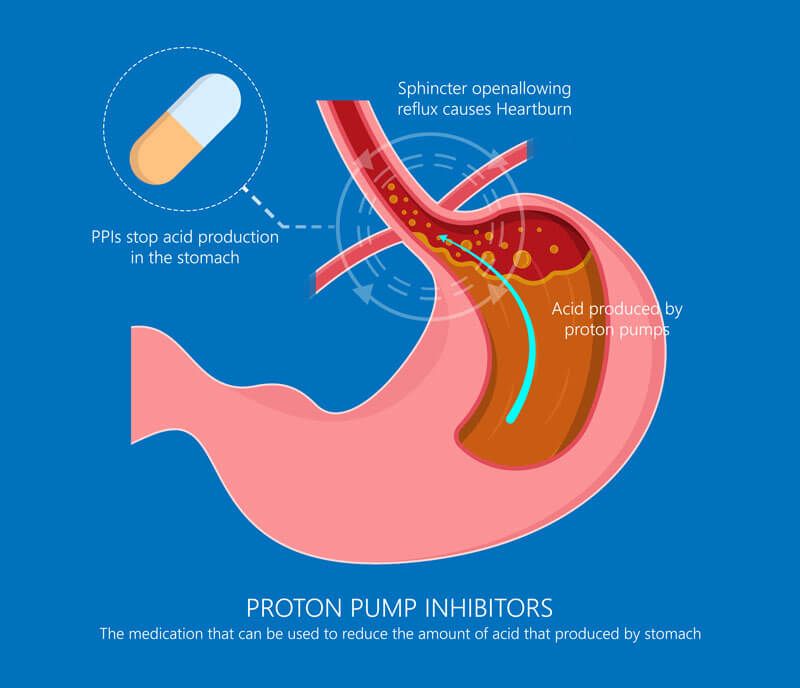Long term acid suppressant medications – Proton pump inhibitors (PPI’s): Concerns and Care
- Maintenance proton pump inhibitors (PPIs) are used in many patients, particularly those with gastro-esophageal reflux disease(GERD).
- With the long-term use of any medication, drug safety becomes an important issue.
- Acid is normally secreted into the gastric lumen, where it serves to both digest dietary protein and maintain a sterile environment by removing ingested bacteria.
- PPIs are strong acid suppressants, and thus long term usage has raised several issues which shall be discussed in this article.
The three main concerns regarding the long-term usage of PPIs include :
- Risk of infectious complications – including Pneumonias, C.difficile diarrhoeas.
- Malabsorption of Iron, Vitamin B12, Magnesium, calcium leading to metabolic bone disease.
- Hypergastrinemia, Gastric carcinoids and Atrophic Gastritis.
Other concerns include acute interstitial nephritis (kidney disease) and drug interactions particularly reducing the effect of Clopidogrel, which is used in coronary stented patients to reduce the risk of stent blockage.
DISCONTINUING PROTON PUMP INHIBITORS
- Some asymptomatic patients who do not have other indications for being on a PPI may be candidates for having their PPI discontinued, though many relapse once the medication is stopped.
- Previous studies have demonstrated rebound gastric acid hypersecretion following the discontinuation of PPIs in patients managed for prolonged periods of time with these agents.
- As discussed below, no specific method for discontinuing the use of PPIs has been proven effective, and no approach is universally accepted.
- Moreover, despite the definition of “prolonged therapy” being likewise unclear, patients treated for a period of six months might be considered candidates for dose tapering.
The following are general guidelines that may be employed when stopping a PPI:
- Patients with GERD or dyspepsia are considered for a taper after being asymptomatic for a minimum of three months.
- Patients treated for acute duodenal and gastric ulcers or as part of a course of treatment for H. pylori for four to eight weeks do not require a taper. In summary, several health related hazards have been identified with a prolonged use of PPI’s, and the key is to use PPIs only when clearly indicated, and to reassess continued use, so that long-term therapy is used judiciously.
Author :- Dr Sanjiv Haribhakti
M.Ch. GI Surgeon of Western India
Kaizen Hospital


